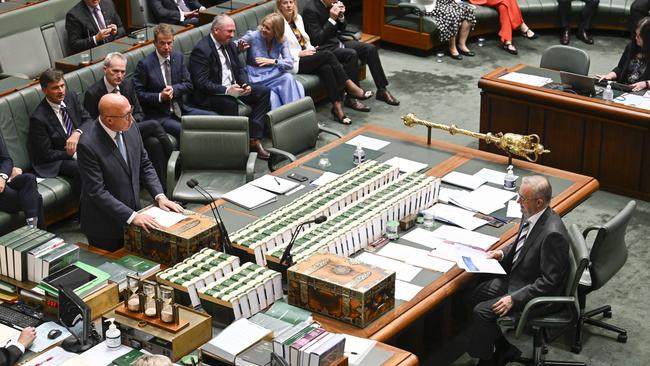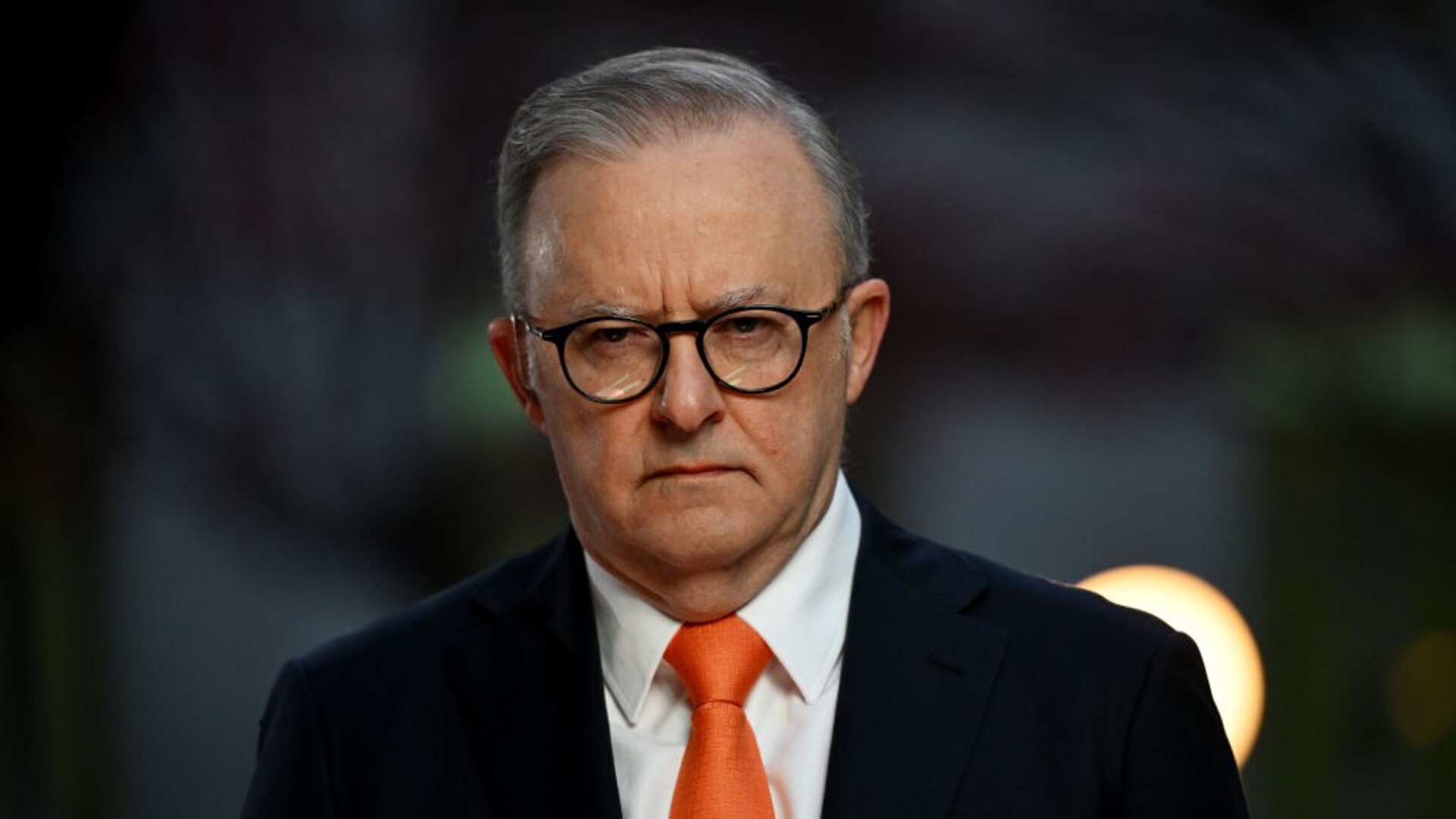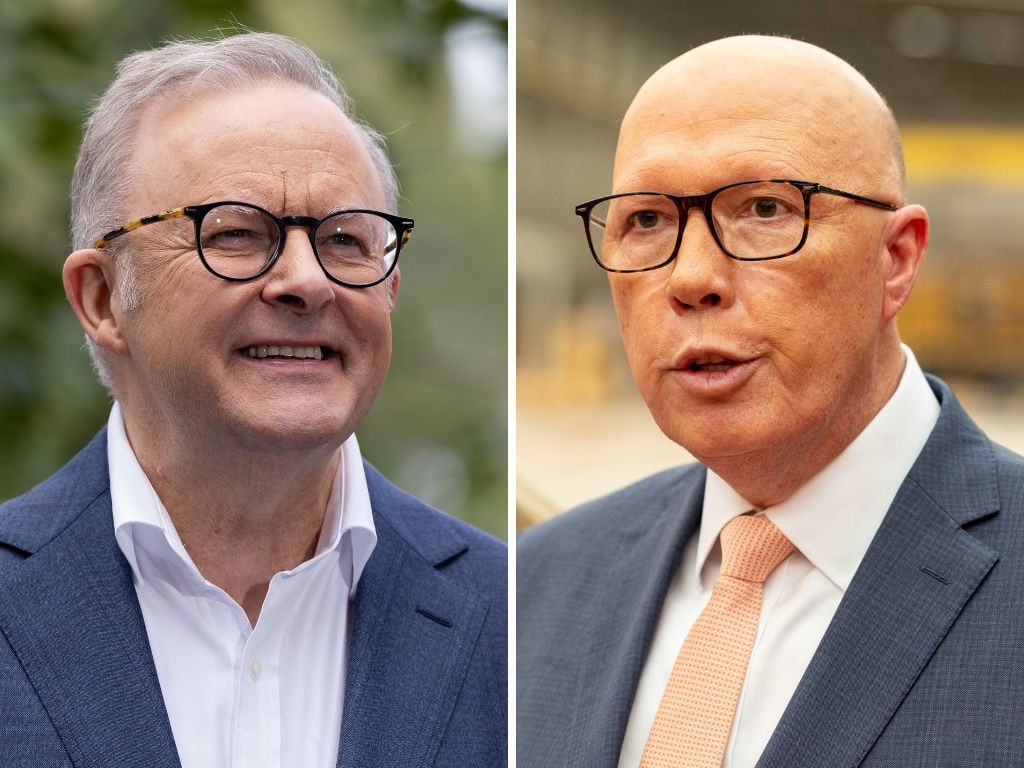
Voters in the 2025 election are not being warned byeither major party of the grave dangers facing the nation of Australia.
I don’t believe Anthony Albanese understands the potential crisis Australia is facing, and Opposition Leader Peter Dutton believes he would be mutilated in the polls if he based a campaign on a looming crisis. Accordingly, the campaign is already disintegrating into a “spendathon” battle. What is best – the Albanese “cup of coffee” tax cut or Dutton’s lower petrol prices for a year?

As Australians, we have to hope the potential scenarios I will describe below do not happen.
But I fear the campaign is a mirror image of the 2022 Victorian election, where the consequences of the previous bad decisions by the Daniel Andrews government were set to explode in the state in the next 24 months. But voters were not warned in strong terms by the Opposition, so they gave Andrews a disastrous third term. He bailed out, but his replacement was unable to manage the crisis she inherited. She made it worse.
When I saw the budget I warned readers that there were dangers of grim times ahead because it projected a cash deficit of some $80bn in 2025-26, then $70bn in each of the next four years. This was unsustainable. In addition, we will need to spend another $25bn annually on defence to maintain ANZUS.
I now realise the situation is much worse than it seemed on budget night. And the vast majority of voters have no inkling of what looks to be ahead.
Here are six crisis points:
1. In the vicinity of a third of Australia’s GDP comprises exports, and those exports are dominated by iron ore, gas and coal.
In the past decade we have enjoyed strong demand and an international reputation for reliability of supply. Tax and royalties from those exports enabled Australians to fund a vast social security system which underpins our standard of living. It’s in danger of crumbling just as both parties go on a disastrous spending spree to get votes.
2. We are deliberately trashing our reliability of supply reputation. In iron ore, BHP and Rio Tinto are now facing almost endless industrial action as the unions seek to regain much greater control of the operations.
Current BHP executives have come up via the mining industry and believe that they must fight to maintain management control. Rio Tinto, which had been a pioneer in gaining management control of iron ore mining from the unions, is now managed by executives who have not experienced what happens when unions control mines. Both are likely to accept the short-term pain to maintain long-term supply reliability.
In gas there have also been industrial disputes, and they have been combined with environmental issues. Australia is rapidly trashing its reputation of being a reliable supplier.

3. In the past that would not have mattered because the world was desperate for product. But now demand is softening on the back of the repercussions of reduced consumption in China and the Trump tariffs.
At the same time, regions including Africa and South America are replacing Australia as the top country for supply reliability. Australia faces lower iron ore prices and lower market share.
4. Many countries have tried the Australian renewables power generation experiment and discovered it boosts prices and lowers reliability.
Here, Dutton has got it basically right, but the argument is confused by nuclear issues and swamped by the “spendathon”.
If Albanese wins, Australia will be a high-cost, low-reliability energy supplier without the option of nuclear power. We currently overcome the high renewables cost problem with subsidies, but the above revenue reduction forces and our high borrowings mean the subsidies are not sustainable.

5. Whether it be in the US, some countries in Europe, Chile or Argentina, administrations are waking up that to attract investments the rules must be more attractive than in the past.
With our high-cost, low-reliable power, the industrial relations quagmire, environmental issues and our endless bureaucracies, we will fall dramatically behind the rest of the world in attracting capital. And voters have no idea it is happening.
6. Unless there is dramatic change, Australians’ largest looming mining project – the South Australian copper belt – will be replaced by expansion in countries that want investment more than Australia.
How does the message get to Australia? Once the currency traders see the mess we are in, they will dump the Australian dollar. At around US50c to US55c, we will be forced to defend the currency because the cost of imports will skyrocket. That means lifting interest rates sharply.
We will also be forced to reduce the deficit at a time when it will be very painful. That’s when we will realise that the 2025 elections did not address the issues. That’s what Victorians now realise happened to them in 2022.





